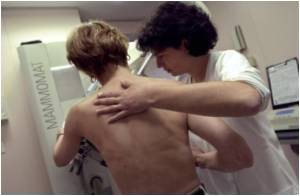
Epimutation does not affect the gene sequence as happens in full-blown mutation, still it inactivates certain functions of a gene. An Australian research team from the Peter MacCallum Cancer Centre, the University of Melbourne and the University of Queensland has found epimutation in the blood of some women diagnosed with breast cancer before the age of 40 years, but in whom BRCA1 mutations had not occurred. Unlike with mutations in the BRCA1 gene, these epimutations appear not to be inherited and the relatives of women with epimutations are not at increased risk of breast or ovarian cancer.
Professor Melissa Southey from the University of Melbourne Department of Pathology, co-leader of the Australian Breast Cancer Family Study and a senior author on the paper said factors that triggered epimutations that stopped the gene BRCA1 from doing its usual job of preventing breast cancer might cause the same proportion of early-onset breast cancers (10%) as do inherited faults in this gene.
“For about 3-4% of young women, their BRCA1 gene has been made less capable of preventing breast cancers by some unknown factors. This places them at a 3.5-fold increased risk of breast cancer. This discovery of this modification in BRCA1 gene provides impetus for further work in this area,” she said.
Associate Professor Alexander Dobrovic from the Pathology Department of the Peter MacCallum Cancer Centre and the lead investigator on this collaborative study said that the discovery of this epimutation in the peripheral blood indicated that it was present in many tissues of the body.
“This is highly significant for the understanding of mechanisms of breast cancer development as it could drive the development of breast cancer in the same way as a mutation. Many questions remain unanswered, in particular what triggers this epimutation and whether women carrying this risk factor can reduce their risk by dietary or pharmacological intervention.”
Testing for this risk factor will be unavailable until answers to these and other questions are known.
This has been published online in the journal Cancer Prevention Research.
Professor Melissa Southey from the University of Melbourne Department of Pathology, co-leader of the Australian Breast Cancer Family Study and a senior author on the paper said factors that triggered epimutations that stopped the gene BRCA1 from doing its usual job of preventing breast cancer might cause the same proportion of early-onset breast cancers (10%) as do inherited faults in this gene.
“For about 3-4% of young women, their BRCA1 gene has been made less capable of preventing breast cancers by some unknown factors. This places them at a 3.5-fold increased risk of breast cancer. This discovery of this modification in BRCA1 gene provides impetus for further work in this area,” she said.
Associate Professor Alexander Dobrovic from the Pathology Department of the Peter MacCallum Cancer Centre and the lead investigator on this collaborative study said that the discovery of this epimutation in the peripheral blood indicated that it was present in many tissues of the body.
“This is highly significant for the understanding of mechanisms of breast cancer development as it could drive the development of breast cancer in the same way as a mutation. Many questions remain unanswered, in particular what triggers this epimutation and whether women carrying this risk factor can reduce their risk by dietary or pharmacological intervention.”
Testing for this risk factor will be unavailable until answers to these and other questions are known.
Advertisement
This has been published online in the journal Cancer Prevention Research.
Advertisement
Source-Medindia













